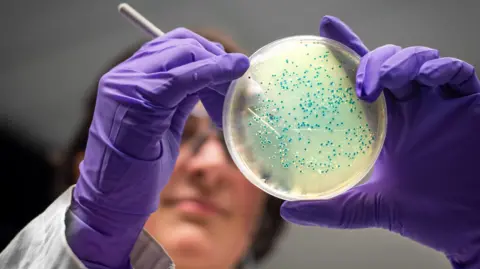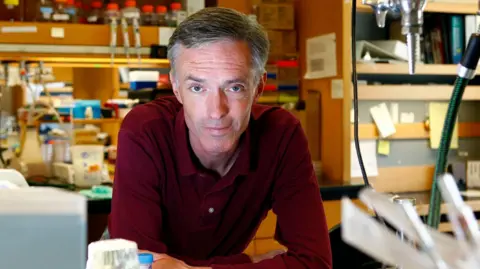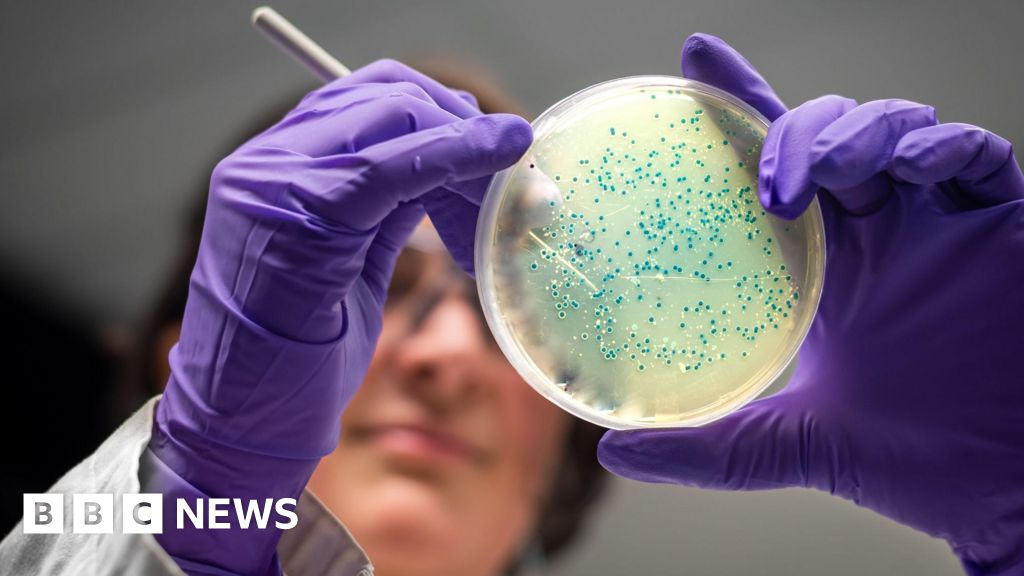 Getty pictures
Getty picturesArtificial intelligence has invented two new potential antibiotics that could kill drug -resistant gonorrhea and MRSA.
The medication was designed by the AI atom-by atom and killed the super bugs in laboratory and tape tests.
The two connections still need years of refinement and clinical studies before they could be prescribed.
The Massachusetts Institute of Technology (with) team behind it says that AI could begin a “second golden age” in antibiotics.
Antibiotics kill bacteria, but infections that resist treatment now cause more than a million deaths per year.
Over -claimed antibiotics have helped bacteria to develop further to avoid the effects of the medication, and for decades there has been a lack of new antibiotics.
Researchers have previously used AI to carry through thousands of known chemicals to identify them with the potential to become new antibiotics.
Now the co-team has gone one step further by using generative AI to design antibiotics for sexually transmitted infection gonorrhea and potentially dead MRSA (methicillin-resistant staphylococcus aureus).
Her study published in the Journal Cell surveyed 36 million connections, including those who either do not exist or have not yet been discovered.
Scientists trained the AI by giving him the chemical structure of well -known compounds and data about whether they slowed down the growth of different types of bacteria.
The AI then learns how bacteria are influenced by different molecular structures, which are built from atoms such as carbon, oxygen, hydrogen and nitrogen.
Then two approaches were tried to design new antibiotics with AI. The first identified a promising starting point by searching a library of millions of chemical fragments, eight to 19 atoms in size and from there. The second gave the AI free reins from the start.
The design process also ejected everything that looked too similar to the current antibiotics. It also tried to ensure that they invented medication instead of soap and filter out everything that is poisonous for humans.
Scientists used AI to create antibiotics for gonorrhea and MRSA, a kind of bacteria that live harmlessly on the skin, but can cause serious infection when it enters the body.
After the production, the leading constructions on bacteria were tested in the laboratory and on infected mice, which led to two new potential drugs.
 WITH
WITH“We are thrilled because we show that generative AI can be used to design completely new antibiotics,” says Prof. James Collins with the BBC.
“AI can enable us to expand molecules cheaply and quickly and in this way and to give us a leg in the battle of our mind against the genes of super bugs.”
However, they are not ready for clinical studies, and the medication must require refinement – estimated to do one or two years of working – before the long test process could begin in humans.
Dr. Andrew Edwards from the Fleming Initiative and Imperial College London said that the work was “very significant” with “enormous potential” because it “shows a new approach to identifying new antibiotics”.
But he added: “While AI promises to dramatically improve the discovery and development of drugs, we still have to do the hard farms when it comes to testing security and effectiveness.”
This can be a long and expensive process that does not guarantee that the experimental medication will be prescribed to the patient in the end.
Some continue to demand the discovery of AI drugs to improve. Prof. Collins says “We need better models” that go beyond the performance of the medication in the laboratory that are a better predictor for their effectiveness in the body.
There is also a problem with how challenging the AI designs should make. Of the top 80 gonorrhea treatments that were theoretically designed, only two were synthesized to create medication.
Prof. Chris Dowson at the University of Warwick said that the study was “cool” and showed that AI is a “significant step forward as an instrument for the discovery of antibiotics to alleviate the development of resistance”.
However, he explains that there is also an economic problem that is taken into account in drug -resistant infections – “How do you do drugs that have no commercial value?”
If a new antibiotic were invented, I would ideally use it as little as possible to keep its effectiveness, which makes it difficult for everyone to make a profit.

